Key productions
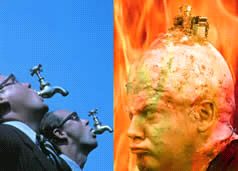 Forkbeard Fantasy have produced dozens of shows ranging from On An Uncertain Insect to The Barbers of Surreal, The Brain and Frankenstein. Their plays grapple with big ideas, ranging from the history of cinema to genetic engineering and climate change. Many productions have explored scientific and pseudo-scientific themes featuring complex inventions and hare-brained inventors. They were responsible for producing one of the first shows about genetics – The Clone Show in 1980. Ironically some of their later productions involved collaborations with cutting-edge scientists, receiving funding awards from The Wellcome Foundation and DEFRA.
Forkbeard Fantasy have produced dozens of shows ranging from On An Uncertain Insect to The Barbers of Surreal, The Brain and Frankenstein. Their plays grapple with big ideas, ranging from the history of cinema to genetic engineering and climate change. Many productions have explored scientific and pseudo-scientific themes featuring complex inventions and hare-brained inventors. They were responsible for producing one of the first shows about genetics – The Clone Show in 1980. Ironically some of their later productions involved collaborations with cutting-edge scientists, receiving funding awards from The Wellcome Foundation and DEFRA.
The Great British Square Dance was invented in 1977 to celebrate the Silver Jubilee. A parody of such British rituals as morris dancing, cricket and freemasonry, it was performed at alternative festivals and urban shopping precincts. Three bowler-hatted business men on Union Flag coloured skis unsuccessfully attempt a fictitious square dance. A quarter of a century later the company revived the piece for the Queen’s Golden Jubilee celebrations on top of a cliff in Devon.
Trailers for the company’s wonderful production of Frankenstein can be seen in the video below.
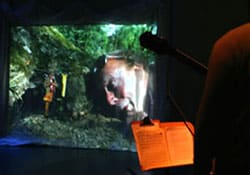 Shooting Shakespeare (2004) was set in the golden years of the Silver Screen and follows Desmond Fairybreath’s first attempt to make a silent version of The Tempest, featuring bicycle-powered robotic projectors and a colourful evocation of Prospero’s island through live action and film. The Tempest was also the inspiration for Rough Magyck (2006), commissioned by the RSC for its Complete Works Festival. This in turn provided the impetus for Invisible Bonfires (2007), a satirical and thought-provoking look at climate change. Presented by the Brittonioni Brothers as two band-wagon-jumping, jet-setting film entrepreneurs, it featured a life-size horse marionette, a live band (The Lotus Petals) and a tea urn powered by a hamster.
Shooting Shakespeare (2004) was set in the golden years of the Silver Screen and follows Desmond Fairybreath’s first attempt to make a silent version of The Tempest, featuring bicycle-powered robotic projectors and a colourful evocation of Prospero’s island through live action and film. The Tempest was also the inspiration for Rough Magyck (2006), commissioned by the RSC for its Complete Works Festival. This in turn provided the impetus for Invisible Bonfires (2007), a satirical and thought-provoking look at climate change. Presented by the Brittonioni Brothers as two band-wagon-jumping, jet-setting film entrepreneurs, it featured a life-size horse marionette, a live band (The Lotus Petals) and a tea urn powered by a hamster.
Key to each production are the meticulously crafted theatre programmes, which provide a background of fictitious and factual information, alongside cartoons and storyboards which have inspired the show – a valuable educational resource in themselves.
This article first appeared in Teaching Drama (Rhinegold Publishing Ltd). © David Farmer 2008.

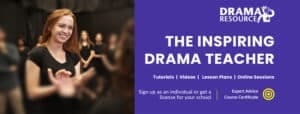
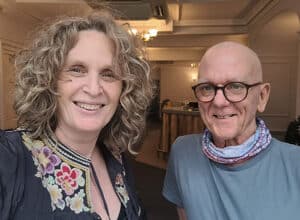
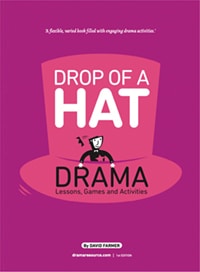
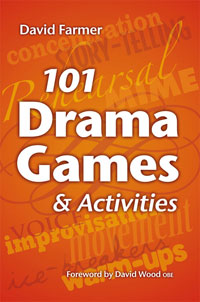
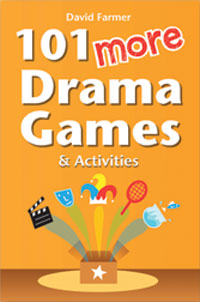
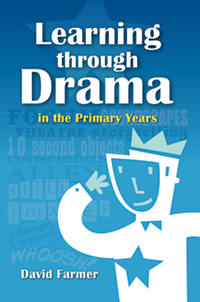
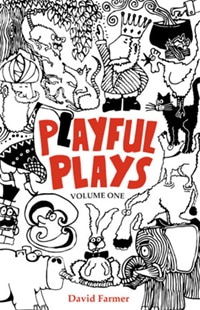
You must be logged in to post a comment.